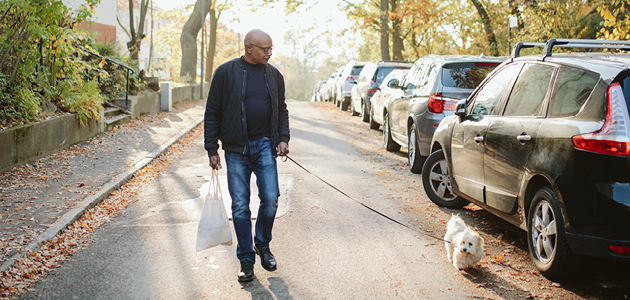The loss of a spouse marks a very dramatic shift in someone’s life. The partner with whom they have shared so much of their life and so much of themselves is gone. And whether that loss was expected or sudden, becoming a widow or widower is traumatic. April is Worldwide Bereaved Spouses Awareness Month, which was created to help support people who have lost a spouse by bringing awareness to their unique needs.
Grief is the perfectly normal reaction to losing someone that you love, and it doesn’t work in a linear way. Because we are all unique and our relationships are unique too, each person experiences grief differently. It’s complicated, and it hurts.
When we see someone in pain, we naturally want to help. But it’s important to remember that grief is a gradual and intensely personal process. While we can’t make the pain go away, there are some gentle dos and don’ts to consider when someone you care about loses a partner. FuneralWise offers the following advice for those trying to support someone who is grieving the loss of a spouse:
- Be there. Don’t pull a disappearing act because you don’t know what to say or do, or because you think you might make things worse. There is nothing lonelier or more isolating than grief, so make sure that your friend or loved one knows that you are always there — especially after the funeral when the hard work really begins. Check in regularly, drop off meals or treats when possible and offer to help with any tasks that they are now handling on their own.
- Listen. Let your friend share as much or as little as they want without pushing for details or hijacking the narrative with your own stories and experiences. Sometimes they will need to tell you the same thing over and over again, other times they may not want to talk much at all. Take the lead from them.
- Say their name. Some people worry that hearing the name of a lost loved one will make the bereaved sad, but not speaking about them can make it feel as though that much-loved person has simply been forgotten. Unless the bereaved has specifically requested that you refrain from speaking about their loved one, don’t be afraid to talk about them and say their name.
- Do something. We often tell people who are grieving to reach out if they need us, but during those early difficult days and weeks it can be hard for someone who is struggling with loss to do that. Drop off freezer meals or a bag of staples they may have forgotten to buy, mow their lawn, walk their dog — whatever may help ease their burden.
- Never say, “at least.” At least he isn’t suffering, at least you have lots of happy memories and at least you have children and grandchildren are well-meaning phrases that can cut like a knife. There is no looking on the bright side when you’ve lost someone, and “at least” statements don’t help.
- Let them grieve at their own pace. Experts say it can take a full year before the bereaved realizes how much life has truly changed, and two years before they’re fully aware of what situations and places can trigger their grief and how to cope with that emotion when it arises unexpectedly. Don’t push the bereaved to “move on” based on your timetable.
If, however, you are concerned about the welfare of someone who is grieving because it seems like their grief may have deepened into depression, it might be time to gently encourage your friend to speak with a grief counsellor or professional therapist. Warning signs of complicated grief might include:
- Feeling like life isn’t worth living
- Wishing they had died with their loved one
- Blaming themselves for the loss or failing to prevent it
- Feeling numb and disconnected for more than a few weeks
- Being unable to perform regular daily activities
Remind your friend that there is no shame in needing help, and that there are experts who are trained to help people grieve and heal.
This April, make an effort to reach out to a widow or widower — even if the loss isn’t recent — to acknowledge their loss and let them know that you care.
419758 CAN/US (04/21)




